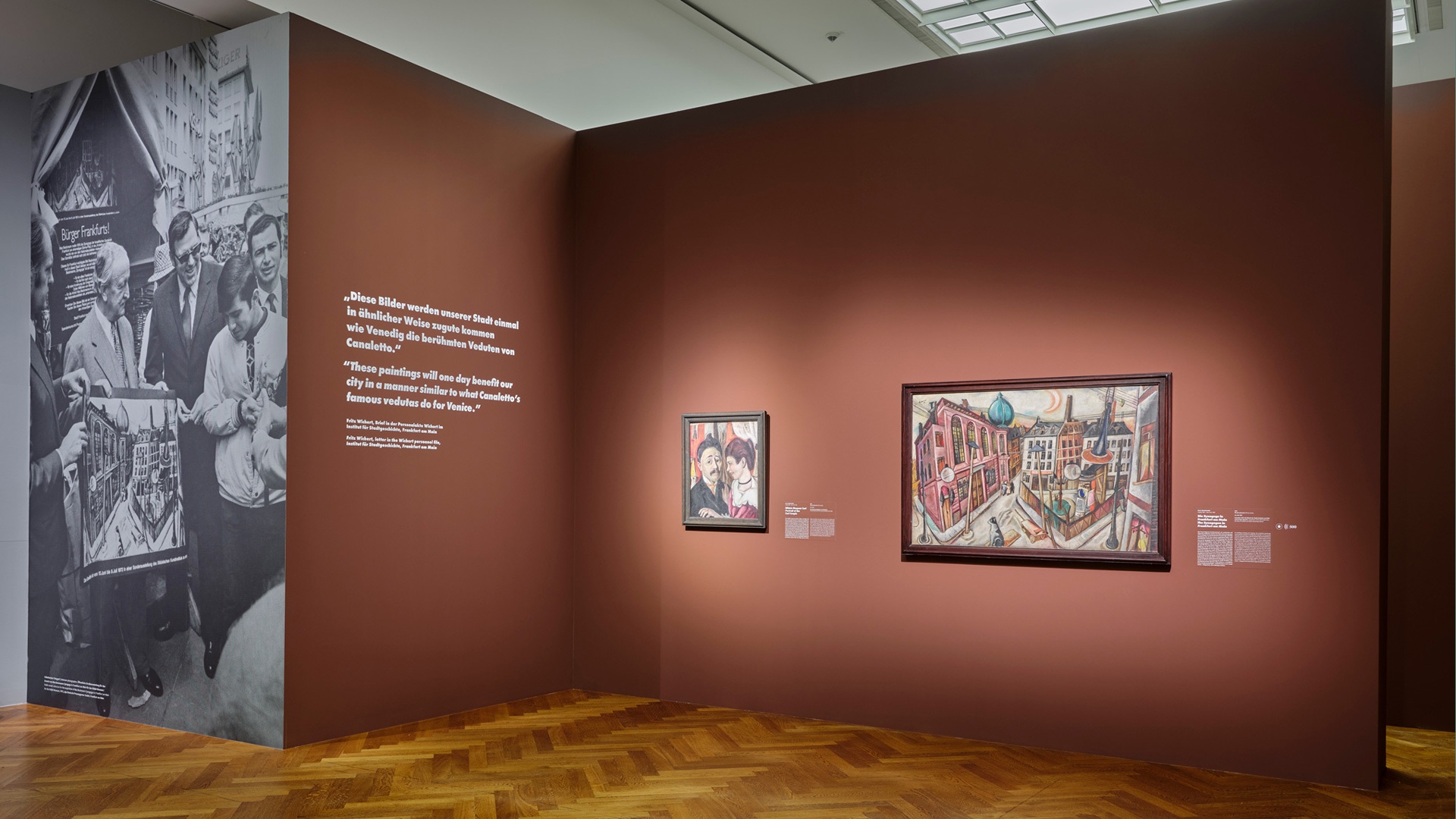About the Exhibition
Max Beckmann (1884–1950) is associated with Frankfurt and the Städel Museum like scarcely any other artist, where he produced a large share of his most important works and developed his characteristic style. The Städel Museum has been dedicated to collecting and studying his oeuvre for more than a century. It has continually acquired works by the artist since 1918 and today has one of the world’s most extensive Beckmann collections to call its own.
One of the artist’s most well-known and most important works, the “Self-Portrait with Champagne Glass (1919)”, has been secured for the Städel in 2021. This icon of modern art was acquired with support from the Städelscher Museums-Verein, the Ernst von Siemens Kunststiftung, the Federal Republic of Germany and the Cultural Foundation of the German Federal States as well as five private donors. In honour of the new acquisition, the museum devoted a special presentation of selected paintings, works on paper and documentary material to its Beckmann holdings and the artist’s Frankfurt years. The “Self-Portrait with Champagne Glass” has been the exhibition’s centrepiece.
Max Beckmann came to the city on the Main in 1915, traumatized by his experiences as a medical orderly in World War I. In 1925, the city appointed him head of a master class at the municipal school of arts and crafts. Numerous views of Frankfurt, self-portraits and portraits of friends and acquaintances testify to his close ties to the city. During his Frankfurt phase, his works were presented here in eighteen solo and group exhibitions, and in 1929, the city awarded him its Grand Prize of Honour. After the National Socialists came to power in 1933, Beckmann was dismissed from his teaching position and compelled to leave Frankfurt. In 1933, vilified as a “degenerate artist”, he fled to Amsterdam. He died in New York in 1950.
Picture: Max Beckmann, Self-Portrait with Champagne Glass, Städel Museum, Frankfurt am Main, joint property with the Städelscher Museums-Verein e.V., the Ernst von Siemens Kunststiftung and the Federal Republic of Germany
Curators: Dr. Alexander Eiling (Head of Modern Art, Städel Museum), Dr. Regina Freyberger (Head Prints and Drawings from 1750, Städel Museum), Dr. Iris Schmeisser (Head of Provenance Research and the Historical Archives, Städel Museum)
Film
